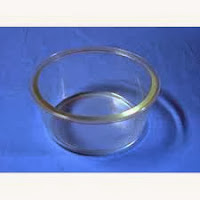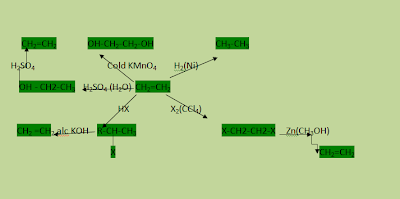1.6 Benefits Abuses and Limitations of Science and Technology:
There are many researches in the field of science which have been made over years.These scientific inventions and discoveries have affected human life in many aspects.
Think of following inventions .How has they affected you?
Aeroplanes allow us to travel long distances in less time.
Computers and Internet keeps us connected to world ,and makes world Global village.
Cell phones make communication easier.
Science has been applied to make new products and solve problems.The application of science is known as Technology.The Internet,cloning of animals ,man made satellites,,computer chips and genetically modified food are all products of technology.
Dolly ,cloned sheep
microchips.
Aeroplanes allow us to travel long distances in less time.
Computers and Internet keeps us connected to world ,and makes world Global village.
Cell phones make communication easier.
Science has been applied to make new products and solve problems.The application of science is known as Technology.The Internet,cloning of animals ,man made satellites,,computer chips and genetically modified food are all products of technology.
Dolly ,cloned sheep
microchips.
man
made satellites
Through the discoveries we can gather and interpret data using computer technologies.This will lead us to new discoveries.
Think about it
Do you think that science and technology have improved your life?Think of the machines and appliances which run on electricity has brought us.What comes in your mind the life before the electricity was convenient than today.?Is there any harm with the use of electricity?Limitations of electricity?Discuss these questions and try to find answers.
BENEFITS
From the example of electricity ,we can see that science and technology have brought great benefits to mankind.Science and Technology allows us to grow more food,live longer,make our lives more comfortable,communicate faster and farther,move from place to place with ease and explore outer outer space.
The discovery of new medicines can prevent or cure diseases,and inventions of machines which can be used in medical treatments enable us to live longer and healthier.
Vaccines can help us to prevent diseases.
New technology allows to treat diseases more efficiently and effectively.
Science and technology allows us to explore outer space.
Science and technology helps us to grow more and improved food.
Satellites enable us to communicate faster and farther.
ABUSE AND MISUSE
However ,science and technology is a double edged sword.It can bring about negative effects as well.The generation of electricity using fossil fuels.e.g can lead to pollution which cause harm to human beings and environment.
At some times science and technology have been misused or abused by human beings.An example of abuse is the invention of and use of deadly weapons which are harmful to us and environment.We must there fore use science and technology with care and responsibility.
Nuclear explosion.
TRY IT OUT
Have you ever heard of Noble prize?It is named after Alfred Noble,the inventor of Dynamite,who left much of his wealth to the establishment of Noble Prize.How have human beings misused the invention of Alfred Noble?You may use the Internet to help you find the answer.
LIMITATIONS
In your discussion about electricity,did you find any limitations in the use of electricity?Is electricity able to provide us with enough energy so that we can turn night into day at a flick of switch?Is it reliable?Or do you experience power back outs every now and then?
Science and technology have their limitations too.They can not be used to solve all our problems and all our queries.We can use science and technology to reduce the damage caused by natural disasters such as earthquakes and hurricanes,but we cannot prevent them from happenings .Can you give other examples to show the limitations of science and technology?
How science and technology used to reduce damages caused by a hurricane or an earthquakes?
KEY POINTS
made satellites
Through the discoveries we can gather and interpret data using computer technologies.This will lead us to new discoveries.
Think about it
Do you think that science and technology have improved your life?Think of the machines and appliances which run on electricity has brought us.What comes in your mind the life before the electricity was convenient than today.?Is there any harm with the use of electricity?Limitations of electricity?Discuss these questions and try to find answers.
BENEFITS
From the example of electricity ,we can see that science and technology have brought great benefits to mankind.Science and Technology allows us to grow more food,live longer,make our lives more comfortable,communicate faster and farther,move from place to place with ease and explore outer outer space.
The discovery of new medicines can prevent or cure diseases,and inventions of machines which can be used in medical treatments enable us to live longer and healthier.
Vaccines can help us to prevent diseases.
New technology allows to treat diseases more efficiently and effectively.
Science and technology allows us to explore outer space.
Science and technology helps us to grow more and improved food.
Satellites enable us to communicate faster and farther.
ABUSE AND MISUSE
However ,science and technology is a double edged sword.It can bring about negative effects as well.The generation of electricity using fossil fuels.e.g can lead to pollution which cause harm to human beings and environment.
At some times science and technology have been misused or abused by human beings.An example of abuse is the invention of and use of deadly weapons which are harmful to us and environment.We must there fore use science and technology with care and responsibility.
Nuclear explosion.
TRY IT OUT
Have you ever heard of Noble prize?It is named after Alfred Noble,the inventor of Dynamite,who left much of his wealth to the establishment of Noble Prize.How have human beings misused the invention of Alfred Noble?You may use the Internet to help you find the answer.
LIMITATIONS
In your discussion about electricity,did you find any limitations in the use of electricity?Is electricity able to provide us with enough energy so that we can turn night into day at a flick of switch?Is it reliable?Or do you experience power back outs every now and then?
Science and technology have their limitations too.They can not be used to solve all our problems and all our queries.We can use science and technology to reduce the damage caused by natural disasters such as earthquakes and hurricanes,but we cannot prevent them from happenings .Can you give other examples to show the limitations of science and technology?
How science and technology used to reduce damages caused by a hurricane or an earthquakes?
KEY POINTS
- Technology is the application of science.
- Science and technology can bring us great benefits.However,abuse and misuse can cause problems to human beings and the environment.
- Science and technology have limitations.





.jpg)
.jpg)
.jpg)
.jpg)
.jpg)
.jpg)
.jpg)
.jpg)
.jpg)
.jpg)


































